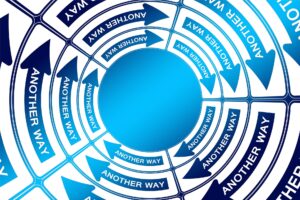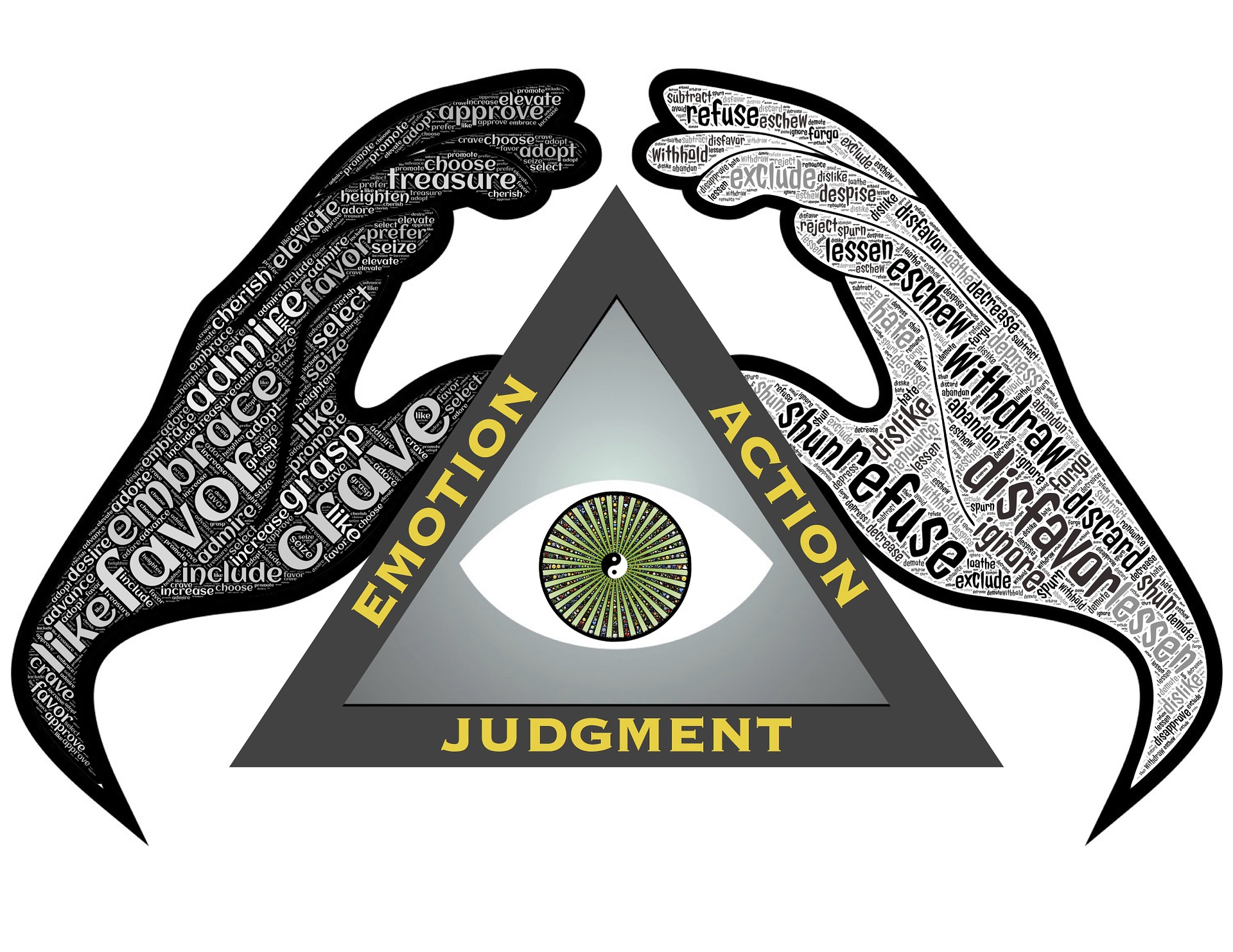What do you want? Ask and ye shall receive.

Do you know? Could you put it in words that say what you mean? Can you visualize it into a plan of action? Do you know what you want to feel? Do you know what road you want to walk down? Do you know what perspective you are going to take when you start walking down that road? Do you understand the boundaries and consequences, pitfalls and lost potentials? Do you understand what your impact on other people is going to be? Do you include accurate accounts of all these variables to predict with high probability what the actual experience will feel like?
Can you see yourself clearly, achieving your desires having walked the path you just visualized?
 Having gone through the pleasures and pitfalls in your minds-eye, and seeing what unexpected situations arise that you may not have anticipated, do you re-evaluate and refine your plan to include this new information as it adds to the accuracy and integrity of predicting your actual experience? What do you feel? How are others perceiving you now? Are you proud of yourself? Do you respect yourself after doing what you did? Would you share your experience with others? How do you feel about yourself as a person? These questions are asked by you to you and are measured against a moral standard that you resonate with.
Having gone through the pleasures and pitfalls in your minds-eye, and seeing what unexpected situations arise that you may not have anticipated, do you re-evaluate and refine your plan to include this new information as it adds to the accuracy and integrity of predicting your actual experience? What do you feel? How are others perceiving you now? Are you proud of yourself? Do you respect yourself after doing what you did? Would you share your experience with others? How do you feel about yourself as a person? These questions are asked by you to you and are measured against a moral standard that you resonate with.
Now ask yourself: Are you sure you want to ask for what you are asking for? Have you considered all the variables impacting your desire from an objective witness point of view to get an answer of integrity? Have you considered the long term effect your impact will have? Were your predictions of the impact accurate? Are you able to see what road this satisfied desire will lead you down? Can you see it clearly?
What do you stand for? What do you defend in your character that is a core representation of beliefs you have? What do you consider to be the rules and expectations? Who are you being? Who are you projecting? Who is reflected back? What do you see in yourself? Where do you want to go? What do you want to experience? Ultimately, what do you want to feel?
Once you physically act, that action becomes permanent. Permanent means it exists. It can not be undone.
Do you have the skills and ability to control yourself enough, that you are able to restrict yourself physically, from doing things that go against your core value but feel good in the moment? This is the measure of your character against a Virtue – can you restrain yourself from your own demise?
What impact will you make in the world? 
An intended meaning shapes the perspective and boundaries to give you a road to walk on. It gives you the scenery, the landscape, and all the players you need to carry out your role in your plan.
Do you want to make a permanent impact or an impermanent one? Do you know the difference? There is a very big difference if you understand the meaning intended.
A rule in TFYT’s Mindset is an understanding of the intention and meaning of permanent and impermanent.
Permanent is worthy of remembering and benefits many.
Impermanent is worthy of forgetting and offers no long term benefit or reward to anyone after the initial satisfaction.
 This a moral conflict you will find yourself facing throughout your life. It is these crossroads that lead you down the path you choose. If you can identify where you want to go, you can begin heading in that direction. It requires your cooperation in honoring the rules of the moral code you value, without you holding yourself accountable to the boundaries, you will stray from them – sometimes to far. Until then, you are turning around in circles with all the choices and what if’s, that you don’t actually make a move.
This a moral conflict you will find yourself facing throughout your life. It is these crossroads that lead you down the path you choose. If you can identify where you want to go, you can begin heading in that direction. It requires your cooperation in honoring the rules of the moral code you value, without you holding yourself accountable to the boundaries, you will stray from them – sometimes to far. Until then, you are turning around in circles with all the choices and what if’s, that you don’t actually make a move.
Identify who you want to be in this new experience you are considering. What role do you want to play? Who do you want to be known for? What do you want to feel proud of having accomplished?
It is better to frame your choices with intention than to let your choices frame your intentions.
It is better to make a choice than to have a choice made for us.
It is easier to navigate the path with a plan of action than to deal with what comes up as it comes. Preparedness is key.
Choose the characteristics and integrity levels that support the moral code your belief system adheres to, and use these guidelines as your boundaries and perspectives when you are challenged to make a difficult decision. You will find the answer to your question – like it or not.
Understand that because you believe you have a right to do something doesn’t mean it’s the right thing to do. If you walk in a mindset to do what is right, not what you think you have a right to do, you will grow in character realizing that what is right for someone else doesn’t mean it is right for you. Be your best self. Honor yourself. Respect yourself. And give the same to others – that is how one receives – when someone else gives – it is a cycle – if you break the chain, you broke the chain.

Decide who and what type of person you are going to represent and measure it against the characteristics and qualities of your highest moral value. Feeling what that feels like energetically, before you feel it physically, offers an advantage in determining how you are going to feel about yourself after you physically act. 
When the experience is over, you have solidified it’s existence and made it permanent. You have created an opportunity for it to be reflected upon at will. The memories you make are yours forever. The essence of natural morality is what feeds your conscience and speaks to you supporting you in achieving your desires. Be aware, that breaking the rules of natural morality, cause natural consequences to innately follow.
Evaluate your difficult decisions with this mindset and see if you are closer to reaching a satisfying decision.
Or ignore the opportunity to measure your desires against a moral code you stand for and your personal power declines as you are less prepared for all the pitfalls you will encounter on your journey.
What do you want?

